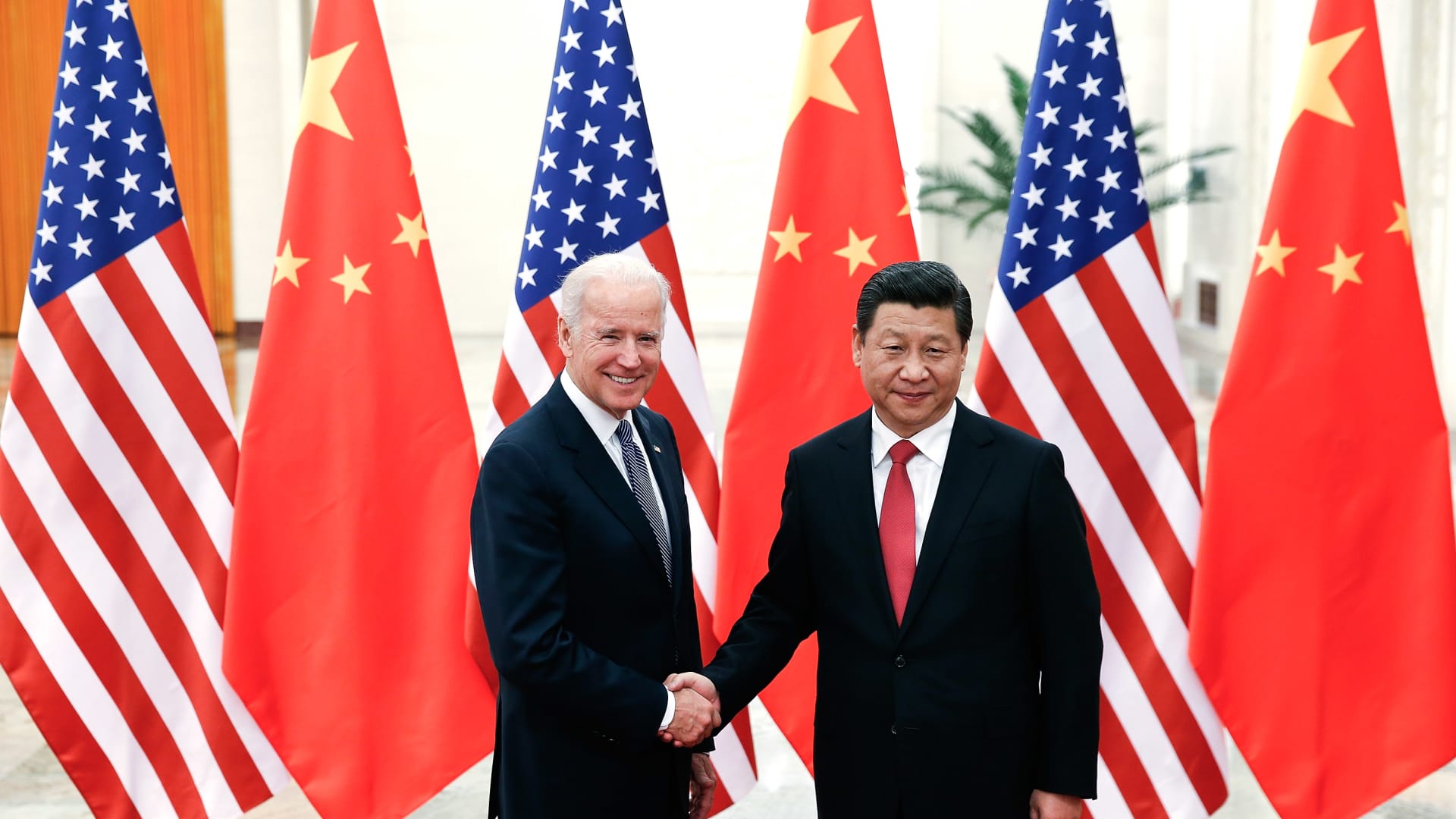Chinese President Xi Jinping and then U.S. Vice President Joe Biden shake hands in the Great Hall of the People in Beijing, China, December 4, 2013.
Zhang Lintao | Getty Images News | Getty Images
The G7 leaders agreed on the need to de-risk rather than decouple from China, acknowledging the challenges posed by the mainland’s “distortion of the global economy”.
“We will not decouple or turn inward,” the G7 leaders said in a joint statement when they met in Hiroshima, Japan, over the weekend. “At the same time, we recognize that economic resilience requires de-risking and diversification.”
The leader added: “We will work to address the challenges posed by China’s non-market policies and practices that distort the global economy. We will combat malicious behavior such as illegal technology transfers or data leaks.”
U.S. President Joe Biden reiterated that stance at a press conference on Sunday: “We don’t want to decouple from China, we want to reduce risk and diversify our relationship with China.
This means taking steps to diversify supply chains, he explained, “so we are not dependent on any one country for essential products. It means working together to resist economic coercion and combat harmful practices that harm our workers. It means protecting a small Some advanced technologies are critical to our national security.”
After a meeting of G7 finance ministers and central bank governors earlier this month, U.S. Treasury Secretary Janet Yellen said China’s behavior “is something that should concern us all.”
“From a geopolitical standpoint, there are many examples of China using economic coercion against countries that take actions that are not satisfactory to China,” she said, citing China’s trade disputes with Australia and Lithuania as examples.

In a statement, the G7 leaders said, “We will build resilience to economic coercion. We also recognize the need to protect certain advanced technologies that could be used to threaten our national security without unduly restricting trade and invest.”
The world’s leading democracies said the bloc would “reduce overreliance on our critical supply chains”, while stressing the need to work with China, noting China’s role in the international community and the size of its economy.
“We stand ready to build a constructive and stable relationship with China, recognizing the importance of engaging candidly with China and expressing our concerns directly to China. We act in our national interest,” the statement said.
President Joe Biden’s administration has previously briefed industry groups such as the Chamber of Commerce on measures aimed at curbing U.S. investment in China, according to media reports.
Such rules would mean stricter guidelines for U.S. companies that would be required to notify the government of new investments in Chinese tech companies, According to PoliticoTransactions in key industries such as microchips will also be banned, according to the publication.
British Prime Minister Rishi Sunak also told reporters that London is willing to follow the US restrictions on Chinese investment, British “Financial Times” reported.
Future decoupling risk?
Ahead of the weekend’s G-7 summit, Goldman Sachs economists Hui Shan and Andrew Tilton said they expected measures from the Committee on Foreign Investment in the United States (CFIUS), a U.S. government agency that reviews deals involving foreign investment. The United States depends on whether the transaction violates its national security.

In a report previewing a range of measures earlier this month, they said, “Once the basic framework is in place, there is likely to be an increased focus on improving existing tariff, export control and investment regimes.”
“We expect them to focus fairly narrowly on advanced semiconductors and related technologies, parallel to last fall’s export controls, and do not expect to impose significant restrictions on secondary market portfolios.”
“Large-reaching” damage
Economists at Allianz said in a note on Wednesday that the widening rift between the U.S. and China could cause further damage.
“The economic impact of a further decoupling of the West from China could be profound,” they wrote, adding that the damage to the Chinese economy could be “far from trivial.”
“China could retaliate by reducing supplies of key raw materials in which it dominates, potentially seriously disrupting global supply chains,” they said.
“But that’s unlikely because it already has some form of foreign investment restrictions in place and is still seeking economic pragmatism.”
Taiwan factor
U.S.-China relations could escalate further after talks between Washington and Taiwan on a number of trade items ended on Friday, signaling a possible agreement on the first part of a bilateral trade deal “Trade in the 21st Century” initiative.
The first agreement under the initiative covers: customs management and trade facilitation, good regulatory practices, domestic regulation of services, anti-corruption and SMEs, In a press release, the Office of the U.S. Trade Representative said.
“This achievement represents an important step forward in strengthening the U.S.-Taiwan economic relationship,” U.S. Trade Representative Catherine Day said of the agreement.
China has repeatedly warned against deepening bilateral engagement between the United States and Taiwan.
Goldman Sachs believes the focus of U.S.-China tensions could shift from trade to the military due to Taiwan.
“The more immediate focus is on building Taiwan’s military capabilities to deter conflict,” the US political economists Alec Phillips and Tim Krupa wrote earlier this month.


